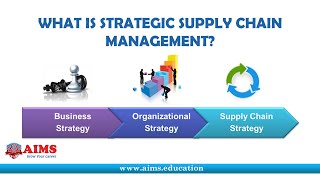
You're likely familiar with teamwork if you've ever been asked for leadership. In addition to the skills that make teams successful, effective leaders also develop teams capable of seeing and envisioning success. The best leaders give their staff specific steps to reach their goals. The eLearning program today gives you the tools that you need to turn your boss into a true leader. Read on to learn how to develop these skills in your own career!
Leadership requires teamwork
Effective communication skills and a commitment to teamwork are crucial for the success of any team. Trust and respect are fostered by team leaders who empower others and hold them accountable. Leadership is an essential part of teamwork. It is essential to develop listening skills as a team leader. You should make it easy for team members to share their ideas. Effective teamwork requires the following essential qualities:
Leadership skill: Commitment
Leaders are expected to demonstrate commitment. When a leader is dedicated to a mission, or a task they are assigned, others will follow his example. It is contagious. When others see commitment, they will be motivated to follow suit. Commitment is an essential leadership skill. But how can you build commitment in your staff? Here are three methods to encourage commitment within your team. All three require mental toughness.

Leadership skill: Creativity.
Creative thinking is essential if you want to be a leader. According to the Cambridge dictionary creative is defined as the ability or ability to invent new ideas and solve problems. Many leaders have created rules and regulations to limit the abilities of their teams throughout history. Creativity is essential in today's world. Many leaders still rely on outdated rules to maintain a sense order and consistency.
Leadership skills include integrity
Leadership requires a high standard of integrity. As a leader, your actions should reflect your values and beliefs. If you fail to do your part, the results will reflect poorly. Failure to listen is just the same as failing to uphold your values. To attract talent and keep customers, integrity is essential. Leaders who are true to their values will be able to inspire others and have long-lasting success.
Leadership skills include communication skills
Effective communication skills can make you a leader whether you are a manager and a business owner or an employee. Leadership skills are essential for motivating and inspiring others to work towards a common goal. Effective communication skills are essential for reaching others. As a leader, you must know how to communicate effectively with all of your team members to effectively achieve your objectives. Here are some tips for improving your communication skills so you can be a better leader.
Empathy is an essential leadership skill
Leaders need to be able to see the needs of others and understand their circumstances. Managers can use empathy to identify productivity issues and help their employees succeed in their jobs. Empathy and shared goals are what motivate employees to follow their managers. Empathy is an essential leadership skill. Here are some reasons you should learn this skill. These tips will help you make your employees feel valued and appreciated.

Time management is an important leadership skill
Time management is a skill that helps people see the bigger picture. They can achieve their goals by setting clear goals and delegating responsibilities into smaller tasks. Effective communication skills are crucial for time management. Time management is about setting boundaries and saying no to things that you don't have the time for. This allows for you to put your focus on the most important tasks instead of wasting time on irrelevant activities. Keeping an up-to-date calendar is another key to time management.
Strategic thinking is a leadership skill
Engaging in team discussions is the best way to improve your strategic thinking. These discussions can help you refine your strategy, and prevent blind spots and biases. Communication and trust are the keys to effective discussions. Jack Canfield once said that good preparation and a strategy are key to making your luck. You can improve your leadership skills and create a cohesive team by learning from your team.
Leadership skills include the ability to resolve conflicts
You must be able to manage conflict as a leader. This skill can help you rise to the top of your profession and also allow you to disrupt the momentum within your team or company. A conflict that goes unchecked can create a toxic workplace. Although conflict management can seem straightforward, it requires a deep understanding of the wider environment in which conflict may occur. Leaders must understand how their actions can impact the other agendas when there is conflict.
FAQ
What is Six Sigma?
Six Sigma uses statistical analyses to locate problems, measure them, analyze root cause, fix problems and learn from the experience.
First, identify the problem.
The data is then analyzed and collected to identify trends.
Then, corrective actions can be taken to resolve the problem.
Final analysis of data is done to determine if the problem has been solved.
This cycle continues until the problem is solved.
How does a manager motivate his/her employees?
Motivation refers to the desire or need to succeed.
Doing something that is enjoyable can help you get motivated.
Another way to get motivated is to see yourself as a contributor to the success of the company.
You might find it more rewarding to treat patients than to study medical books if you plan to become a doctor.
Motivation comes from within.
One example is a strong sense that you are responsible for helping others.
Perhaps you enjoy working hard.
If you feel unmotivated, ask yourself why.
Then try to think about ways to change your situation to be more motivated.
What are some of the common mistakes made by managers?
Managers can make their jobs more difficult than necessary.
They may not be able to delegate enough responsibility to staff or provide adequate support.
Managers often lack the communication skills necessary to motivate and guide their teams.
Some managers create unrealistic expectations for their teams.
Managers might try to solve every problem by themselves rather than delegating the responsibility.
What are the main styles of management?
There are three types of management: participative, laissez faire, and authoritarian. Each style has its own strengths and weaknesses. Which style do your prefer? Why?
Authoritarian - The leader sets the direction and expects everyone to comply with it. This style works well if an organization is large and stable.
Laissez faire - Each individual can decide for himself/herself. This style works best when an organization is small and dynamic.
Participative - Leaders listen to all ideas and suggestions. This approach works best in small organizations where everyone feels valued.
What are management concepts?
Management Concepts are the management principles and practices that managers use in managing people and resources. These topics include job descriptions, performance evaluations and training programs. They also cover human resource policies, job description, job descriptions, job descriptions, employee motivation, compensation systems, organizational structures, and many other topics.
What is TQM?
The industrial revolution was when companies realized that they couldn't compete on price alone. This is what sparked the quality movement. They had to improve efficiency and quality if they were to remain competitive.
Management realized the need to improve and created Total Quality Management, which focused on improving all aspects within an organization's performance. It included continuous improvement, employee involvement and customer satisfaction.
What are the steps that management takes to reach a decision?
Managers face complex and multifaceted decision-making challenges. This involves many factors including analysis, strategy and planning, implementation, measurement and evaluation, feedback, feedback, and others.
Management of people requires that you remember that they are just as human as you are, and can make mistakes. As such, there is always room for improvement, especially if you're willing to put forth the effort to improve yourself first.
We explain in this video how the Management decision-making process works. We will discuss the various types of decisions, and why they are so important. Every manager should be able to make them. You'll learn about the following topics:
Statistics
- UpCounsel accepts only the top 5 percent of lawyers on its site. (upcounsel.com)
- As of 2020, personal bankers or tellers make an average of $32,620 per year, according to the BLS. (wgu.edu)
- 100% of the courses are offered online, and no campus visits are required — a big time-saver for you. (online.uc.edu)
- Your choice in Step 5 may very likely be the same or similar to the alternative you placed at the top of your list at the end of Step 4. (umassd.edu)
- The BLS says that financial services jobs like banking are expected to grow 4% by 2030, about as fast as the national average. (wgu.edu)
External Links
How To
How can you apply 5S to your office?
The first step to making your workplace more efficient is to organize everything properly. An organized workspace, clean desk and tidy room will make everyone more productive. The five "S"'s (Sort. Shine. Clean. Separate. And Store) help to maximize space and ensure efficiency. This session will take you through each step and show you how they can fit into any environment.
-
Sort. Get rid of clutter and papers so you don't have to waste time looking for the right item. This means putting things where you use them most often. Keep it near the spot where you most often refer to it. It is important to consider whether or not you actually need something. If it does not serve a purpose, get rid of it.
-
Shine. Keep your belongings tidy and organized so you can spend less time cleaning up afterwards. Do not keep anything that could possibly cause damage or injury to others. For example, if you have a lot of pens lying around, find a way to store them safely. A pen holder is a great investment as you won't lose your pens.
-
Sweep. To prevent dirt buildup on furniture and other items, clean them regularly. To ensure that surfaces are clean and as neat as possible, you might consider investing in dusting equipment. You can also set aside an area to sweep and dust in order to keep your workstation clean.
-
Separate. Separate your trash into multiple bins to save time when you have to dispose of it. To make it easier to throw away your trash without having to look for it, trash cans are often strategically placed throughout an office. To make sure you use this space, place trash bags next each bin. This will save you the time of digging through trash piles to find what your looking for.